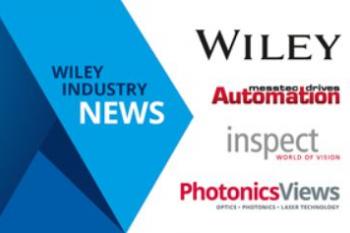New platform for tunable lasers
17.03.2023 - Combination of lithium niobate with silicon nitride for a new type of hybrid integrated lasers.
Scientists at EPFL and IBM have developed a new type of laser that could have a significant impact on optical ranging technology. The laser is based on lithium niobate, often used in the field of optical modulators, which controls the frequency or intensity of light that is transmitted through a device. Lithium niobate is particularly useful because it can handle a lot of optical power and has a high Pockels coefficient, which means that it can change its optical properties when an electric field is applied to it.
The researchers achieved their breakthrough by combining lithium niobate with silicon nitride, which allowed them to produce a new type of hybrid integrated tunable laser. To do this, the team manufactured photonic integrated circuits based on silicon nitride at EPFL, and then bonded them with lithium niobate wafers at IBM. The approach produced a laser with low frequency noise and simultaneously with fast wavelength tuning – both great qualities for a laser used in light detection and ranging (Lidar) applications. Then they performed an optical ranging experiment where they used the laser to measure distances with high precision.
Beyond integrated lasers, the hybrid platform has the potential to realize integrated transceivers for telecommunications as well as microwave-optical transducers for use in quantum computing. “What is remarkable about the result is that the laser simultaneously provides low phase noise and fast petahertz-per-second tuning, something that has never before been achieved with such a chip-scale integrated laser,” says Tobias J. Kippenberg, who led the EPFL side of the project. (Source: EPFL)
Links: Center for Quantum Science and Engineering, EPFL, Lausanne, Switzerland • Binnig and Rohrer Nanotechnology Center (BRNC), IBM Research Europe, Zurich, Ruschlikon, Switzerland






